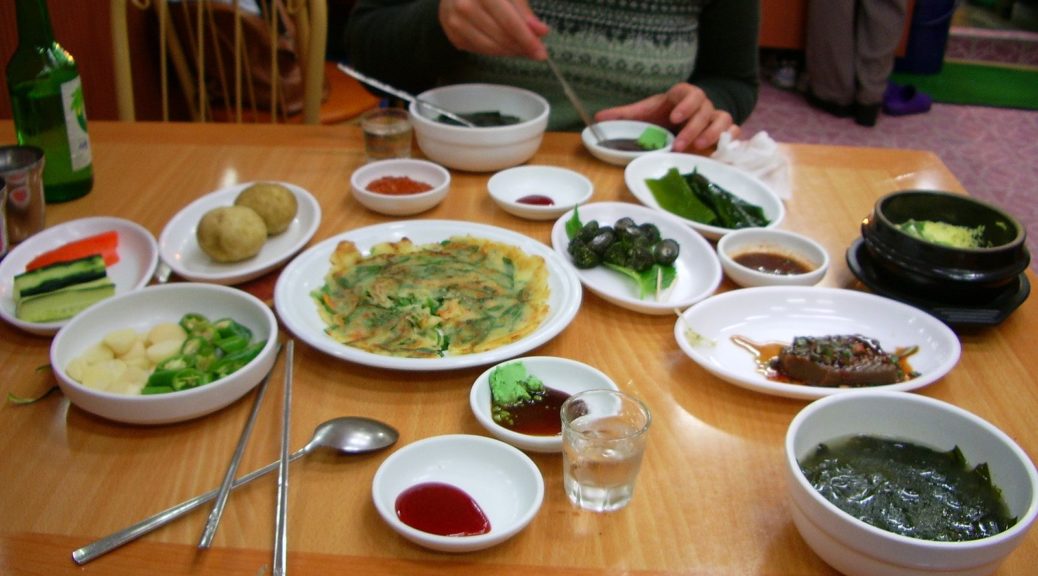By Jacqueline Choe
“Trying” is the key word in this title. So is “lately”–I have never made much Korean food before, aside from instant Shin Ramyun with green onions and cheese (the best) and curry rice, which isn’t exclusively Korean and therefore barely counts. It’s hard to learn how to make Korean meals, namely because a) I wasn’t a spectacular cook to begin with, b) the nearest Asian supermarkets are a trip away if you don’t have a car, and c) nothing ever is, and probably never will be, as good as the food my dad and grandma can make.
I grew up in a Korean household with Korean parents making Korean food; I have very fond childhood memories of digging into those packages of green, white, and pink rice cakes with sweet juice in the middle of them (I still have no idea what those are called). We still eat tteokguk (rice cake soup) every New Year’s, which my grandma makes with just the right amount of salt and egg; her tteokguk is probably, legitimately, my favorite food. The most meaningful thing I did this summer was sit down over a hot bowl of sullungtang with my father as we got to know each other a little bit better, one trip to the restaurant at a time. But what is it about food that makes it so powerful?
It took a while for me to notice, but the act of cooking itself is a bizarrely human occupation. It’s an expression of creativity AND an homage to tradition, a means to an end that is sustenance and survival AND a powerful social connector. It’s a foundational block of culture, and of companionship. Many of our memories with our loved ones might be formed over a dinner table, through the vivid weaving of scents and textures that never really escape us. Food is the part of our identity that tells us where we come from, regarding our relationships, our heritage, and our sense of home.
And for someone like me, a college student a bit far from home, who is learning how to build a relationship with herself as well as with others, and who has just entered the horrifying ordeal that is her twenties (learning one day at a time that her parents and grandparents are only growing older, and that if nobody learns her grandmother’s tteokguk recipe in the coming years then something very meaningful will have been lost–cooking is a way of keeping those connections alive. After all, the connections we cherish are part of what defines who we are.
If you’re ever homesick, try cooking something from your culture or hometown, or just something your loved ones made for you once. It’ll make you proud, even if it doesn’t turn out so great. Or better yet, try cooking with a group! I’m getting together with my friends sometime next week–we plan on making gimbap, among some other dishes from other cultures that will not be nearly as good as our families made it but will be good enough for us. And maybe we’ll play some games and have some conversation while we eat, who knows?
As long as there’s cooking involved…I think it’ll be one of those days that I’ll take with me even after it’s over.
Featured image from Wikimedia Commons
Jacqueline is a junior, born and raised in the suburbs near Seattle, Washington. She is a Linguistics and East Asian Languages major, as well as an avid reader and writer, so she loves everything to do with the English language–and all other languages as well! Currently she is studying Japanese, and plans to start next with Korean. In her spare time, aside from reading and writing, she likes to draw, watch movies, learn new recipes, and volunteer for various educational programs.

